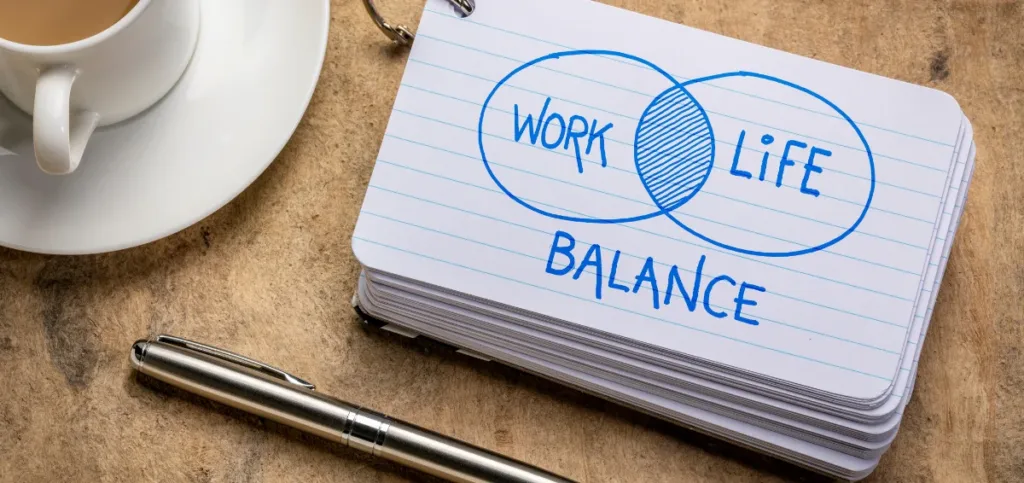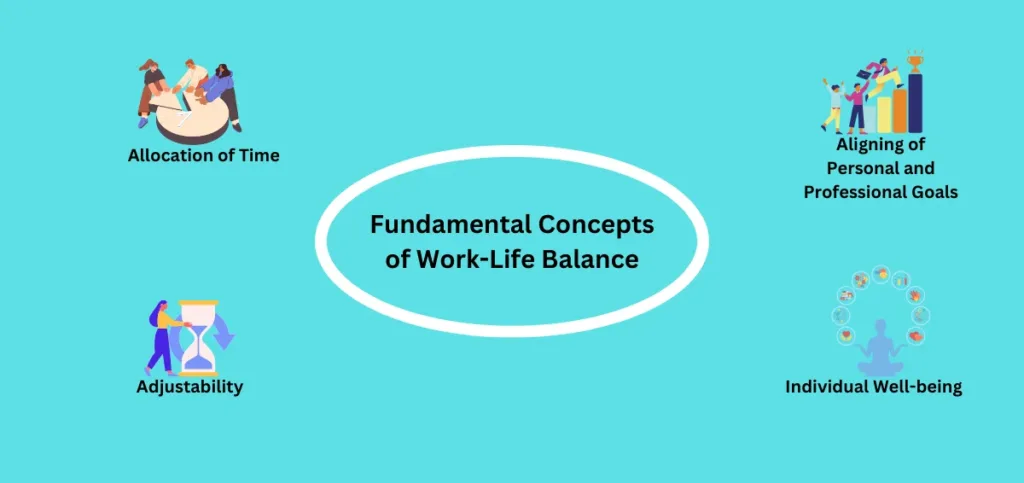
Work helps us develop ourselves both personally and professionally. Through our jobs, we contribute our bit to society at large. In essence, it contributes to our overall well-being. However, the same well-being is disturbed when there isn’t a balance between your personal and professional life. Undoubtedly, as employees, we need to deliver tasks on time and achieve certain targets. But if you feel like that is all you ever do, it’s time to reassess your things. Unhealthy boundaries between work and home cause burnout and, over time, damage your relationships. In this post, we’ll dive deep into the topic of work-life balance and give you effective strategies to manage both.
What is Work-Life Balance?
Work-life balance, or work-life integration, is the harmonious blending of our personal and professional duties. It is achieved by individuals who realize that work is one aspect of living a wholesome life. Ideally, the amount of time you spend on your professional commitments should roughly correspond to the amount of time you spend doing other things that bring you joy. These can be spending time with your family, engaging in a hobby, or working for a charitable cause.
The balance can seem challenging for those who are in dire need of money. Their situation causes them to either overwork or look for additional income sources. However, over time, this negatively impacts their quality of life.
Read Also: Sales Closing Techniques And Strategies
Fundamental Concepts of Work-Life Balance

There are 4 fundamental concepts of work-life balance. These include the following:
Allocation of Time
Time allocation is the basis of a healthy work-life balance. It involves distributing time between work and personal activities in a way that both spheres receive adequate attention. For example, if you work eight hours, then you should allot around the same time for your personal activities. Allocating too much time to work will cause you to neglect other areas of your life. It, in turn, will diminish your overall well-being.
Adjustability
Adjustability or flexibility means working in a way that helps you effectively meet your personal commitments. Some examples of flexibility include the ability to work from home when needed, flexible hours of work, and sharing job responsibilities when the situation arises. Adjustability is an important tenet of work-life balance. It helps individuals meet their professional obligations as needed. However, they do not do so at the cost of their personal duties.
Aligning of Personal and Professional Goals
An alignment of personal and professional goals comes from the realization that both are essential for a better quality of life. Our personal and professional lives are not separate but tied to each other. When both are harmoniously integrated, we feel a deep sense of fulfilment.
Individual Well-being
Individual well-being is the core of performing our personal and professional responsibilities well. It includes the mental and physical health of the person. Taking care of ourselves, by managing stress and taking time to relax, helps us give our best in all areas of our lives.
How to Achieve a Healthy Work-Life Balance?

Feeling stressed out at work is normal. However, there are ways to lessen it and achieve better integration of your personal and professional life. Here are some tips to achieve a healthy balance at the workplace and at home.
At the Workplace
- Set realistic goals to stop feeling the pressure of meeting deadlines. If there is a big task, divide it into small parts and work on each individually. Setting realistic goals will allow you to deliver tasks on time. It, in turn, will make you feel more in control of your work life.
- Ask for a flexible time at work. Workplaces that genuinely care about their employees let them work flexibly. If you feel that you are spending too much time at work, ask for the flexibility to work from home at certain hours or times during the week. Don’t hesitate to ask for any adjustments that might make your work schedule more flexible.
- Take time to relax at work. Relaxation, in the form of taking small breaks or listening to your favorite music for some time, will help you destress. Don’t worry, it won’t make you any less efficient. Contrarily, you will find yourself recharged to tackle even the biggest tasks.
- Communicate your concerns to your senior. If you feel that a certain aspect of your work is straining your personal life, communicate about it to your manager or boss. Managers who value employees are always willing to hear their problems and work out ways to resolve them.
At Your Home
- Avoid taking your work home, unless it’s a part of a flexible work arrangement. See your home as a place where you can devote yourself to your personal activities or responsibilities.
- Divide the responsibilities at home with your partner or family member. It will ensure that you are contributing equally to another area of your life. It will also lessen the burden of tasks on other members of your family.
- Incorporate some movement. This can include doing any kind of activity that makes you physically active, even if it’s just for 10 minutes a day. Staying active or exercising is important for your physical and mental health. You will find yourself more recharged and rejuvenated afterward.
- Eat healthy meals with your family. Sometimes, work stress gets on our nerves. It makes us neglect our well-being, and we try to cope with it in unhealthy ways. These include eating junk food or smoking cigarettes. But they are not the answer to your worries. On the other hand, they will only damage your health in the long run. So, make healthy, nourishing meals with your family or partner at home and enjoy them together.
- Find out whether your company has policies that can support you in better integrating your personal and professional life. For example, some companies offer assistance to their employees in finding a daycare center or looking after an elderly member.
Also Read: Fundamentals of Marketing
Final Words
Being aware that you need to strike a work-life balance is the first step to addressing it. Working longer or more jobs may lead you to feel that you are doing something good for yourself or your family. However, if all you do is work, the effects will be severely damaging to your health and social relationships. So, identify whether you are equally contributing in all areas of your life. If not, refine your approach by following the tips above to achieve a healthy balance.









